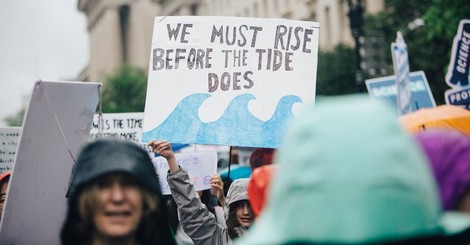Your podcast discovery platform
Curious minds select the most fascinating podcasts from around the world. Discover hand-piqd audio recommendations on your favorite topics.

piqer for: Climate and Environment Global finds
Andrea is a writer and researcher based out of Chicago. Andrea has a Bachelor's degree in environmental science from The Ohio State University and a Master's in Environmental Planning and Management at National Taiwan University, where she specialized in climate adaptation and urbanization. She writes for TaiwaneseAmerican.org, and sends out a biweekly newsletter which includes articles on politics, environment, identity, and intersections of race, class, and gender (http://eepurl.com/bPv-F5).
It’s Never Been Harder To Be A Climate Scientist
Climate scientists are fairly used to receiving hate mail. As the issue of climate change became more and more controversial and increasingly partisan, researchers studying climate change became targets of all kinds of on- and off-line vitriol. They have often received not only hate mail and threats, but were also the targets of litigation from conservative think tanks. But this harassment has risen to new heights recently. Scientists braced themselves for a new "onslaught of intimidation" as Donald Trump, a known climate denier, was elected president late last year.
Scientists have always had to respond to varying political environments as administrations changed over the years. But, it seems, this time things are different. Many say that they are facing pressure they have never faced before in their careers, and the kind of scare tactics are shifting. "Indeed, most scientists say what’s really increased is a quieter form of intimidation: preventing government climate scientists from doing their jobs. The Union of Concerned Scientists’ report accused the Trump administration of 'creating a hostile environment for federal agency scientists who serve the public,' citing the anti-climate rhetoric of agency administrators like Scott Pruitt and Rick Perry, proposed decimation of funding, and general interference in scientists’ work." Government scientists are most affected, as they are "gagged, sidelined, or fired, and funding cuts loom." Many are at a loss, and are seeking legal counsel.
It is a difficult time to be a climate scientist. And it is particularly troubling when scientists are actively discouraged from working on one of the most pressing issues of our time. The stakes are high, and we cannot afford for these scientists to be silenced.

Disagree, they are hoaxers.